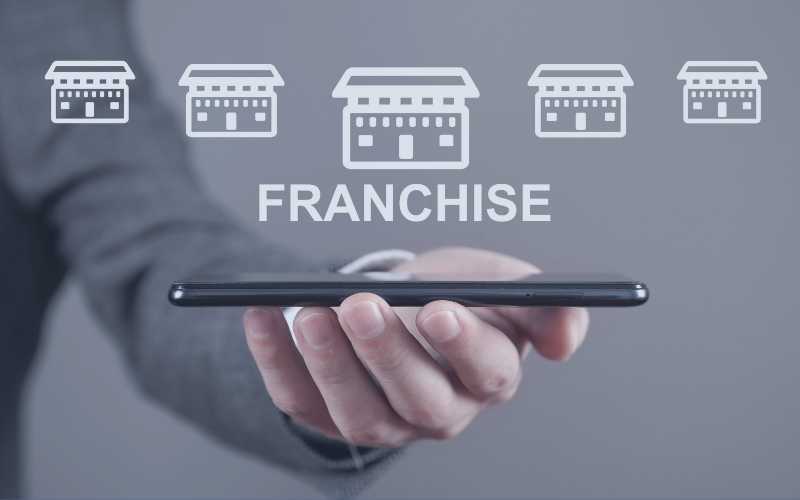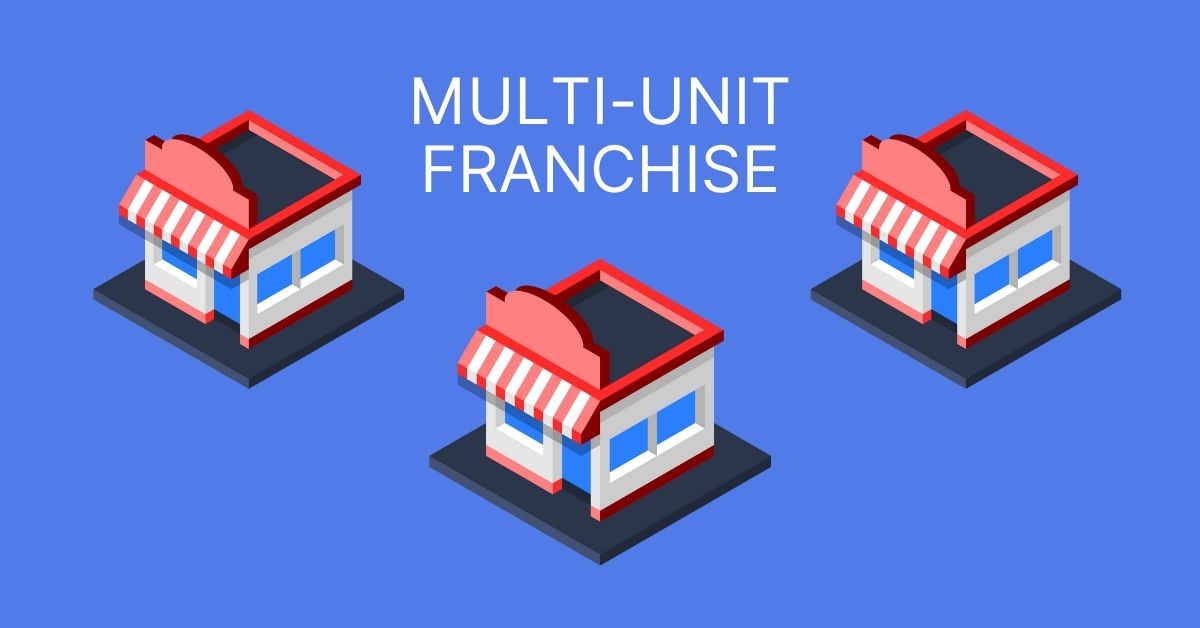In recent years, the multi-unit franchise model has become one of the most exciting business opportunities out there. It’s especially appealing to entrepreneurs who want more than just one location and are aiming to scale quickly.
By managing multiple locations and tapping into multiple revenue streams, multi-unit franchisees can accelerate growth, lower costs, and build lasting relationships with franchisors.
But is it the right move for you? Let’s break down the pros and cons of multi-unit franchise ownership so you can determine if this powerful business model fits your goals.
FAQs
A multi-unit franchise model is when one franchisee owns and operates several locations instead of just one. You manage multiple units—often across different territories—using the same brand, systems, and support.
Because you follow one proven playbook across all locations, operations become more efficient, consistent, and easier to scale in your market.
Yes. Multi-unit ownership is one of the fastest ways to grow in franchising. Franchisors often give multi-unit owners priority access to:
*new territories,
*opportunities to open in emerging markets,
*quicker expansion timelines,
*and incentives to scale.
By replicating a successful system across multiple locations, revenue and market presence grow faster than with a single unit.
Multi-unit franchises require a higher investment than opening one location. Typical costs include franchise fees for each unit, buildouts, equipment, staffing, insurance, legal fees, and working capital.
Some brands offer discounted fees for multi-unit development, but overall costs still rise with each location. That’s why strong financial planning and adequate funding are essential.
Franchisors value multi-unit owners because they help the brand scale quickly. In return, these franchisees often receive:
*stronger support,
*deeper operational guidance,
*strategic insights,
*flexible terms,
*and sometimes exclusive development rights.
Many are also invited to advisory groups that influence brand decisions and future initiatives.
Owning multiple units offers major advantages: more revenue streams, faster growth, economies of scale, stronger franchisor relationships, and greater market visibility.
It also increases the overall value of your business when it’s time to exit. For many franchisees, multi-unit ownership is the path from running a single location to building a true franchise enterprise.
What Is a Multi-Unit Franchise Model?
A multi-unit franchise means you’re not just operating one restaurant or running a single storefront. Instead, you’re responsible for multiple units, possibly across more than one territory. Consequently, this model goes far beyond traditional, single-unit franchising.
In a multi-unit franchise agreement, franchisors grant you the rights to open and operate several locations, sometimes all at once, other times on a development schedule. Moreover, these agreements often come with brand guidelines you must follow across every location for consistency.
Franchisors typically favor franchisees who’ve proven they can operate efficiently, manage people well, and understand how to grow a business. In return, you might get lower royalty fees, development incentives, and preferred access to new territories. It’s a win-win—if you’re ready for it.
The Upside of Multi-Unit Franchise Ownership

1. Multiple Revenue Streams
Owning more than one location opens the door to diversified income. Moreover, if one unit has a slow month, others may pick up the slack. It creates financial stability that a single-unit owner simply can’t match.
Take the fast food sector as an example. In particular, a multi-unit franchise owner can share resources between locations, streamline operations, and cut costs—especially regarding staffing and supplies. That kind of efficiency can seriously boost profit margins.
2. Economies of Scale
One of the biggest advantages of owning multiple units is the ability to scale. Additionally, you can negotiate better supplier deals, optimize staffing, and consolidate marketing efforts across your locations.
For example, if you own several restaurants, you can bulk-order ingredients and supplies, saving on costs.
The result? Lower overhead and stronger profit margins without compromising quality or service.
3. Faster Growth
The multi-unit franchise model is often the fast track to expansion. In fact, many franchisors offer multi-unit franchisees first dibs on new territories or even encourage them to pioneer untested markets.
If you’re looking to grow quickly and make your mark, this model gives you the runway to do it. Moreover, you are not just opening stores—you are building an enterprise.
4. Closer Ties With Franchisors
Many franchisors actively seek out multi-unit franchisees because they help scale the brand faster. As a result, they often provide more support, strategic insights, and flexible terms.
You may get exclusive deals, early access to new offerings, and customized resources designed to help you succeed. In addition, some franchisors even invite multi-unit owners into advisory groups or planning sessions. That kind of collaboration gives you a voice in the brand’s future—and a seat at the table.
5. Established Brand Power
When you choose a well-known franchise, you’re not starting from scratch. Instead, you’re buying into an established company with proven systems, marketing strategies, and a loyal customer base.
That brand recognition makes it easier to attract customers and grow quickly. Plus, you’re not wasting time reinventing processes.
Instead, you’re focusing on optimizing operations, training your team, and scaling effectively across multiple units.
The Challenges

1. Higher Startup Costs
Opening multiple franchise units isn’t cheap. Specifically, you’re looking at a significantly larger investment than a single location, not just in franchise fees, but also in:
- buildouts,
- equipment,
- staffing and legal
- and insurance costs.
You’ll need a rock-solid financial plan and deep pockets (or serious financing) to launch strong and stay afloat.
2. Juggling Multiple Locations
Running several locations means managing different teams, customers, and challenges, all at once. Moreover, it’s not just about delegation.
It’s about building reliable systems, leading strategically, and empowering your managers to keep operations running smoothly without you micromanaging every fire drill.
3. Risk of Spreading Yourself Too Thin
The more units you run, the easier it is to lose focus. Without tight training, strong processes, and consistent brand execution, quality can slip fast. Inconsistencies hurt customer loyalty and brand integrity, so you’ll need rigorous oversight and communication to keep every unit operating at the same high standard.
4. Fierce Competition
Multi-unit ownership doesn’t guarantee dominance, especially in saturated markets. Moreover, you could end up competing with other franchisees from your own brand or similar concepts.
Smart market research, local engagement, and unique marketing strategies are crucial to carving out your territory.
5. Tension with the Franchisor
Multiple units = higher expectations. Underperformance in even one location can sour your relationship with the franchisor, potentially risking your development rights.
Open communication, data transparency, and alignment with brand goals are non-negotiable if you want to keep expanding.
Tips to Succeed as a Multi-Unit Franchisee

Want to thrive in this model? Here’s how successful owners do it:
Build a Solid Team: Hire smart and delegate well. Empower your managers to lead and take ownership of their units.
Use Smart Tech: Leverage systems for scheduling, sales tracking, and communication. A good CRM can boost customer retention and streamline marketing.
Unify Your Marketing: Create a consistent brand experience across all locations. Additionally, work with franchisors to execute local campaigns that drive traffic.
Learn from the Best: Study success stories of other multi-unit franchisees. Learn what worked—and what didn’t.
Get Involved Locally: Participate in community events. Sponsor causes. Build goodwill. It’s not just about brand awareness—it’s about trust.
Why Choose the Multi-Unit Franchise Model?
The multi-unit franchise model is ideal for entrepreneurs who think big. In addition, it’s a powerful way to maximize returns, build equity, and create long-term wealth.
Whether you’re running one restaurant or expanding across several locations, this model gives you a clear path to scale and sustainability.
There are countless franchise opportunities, from fast food and fitness to education and retail. Therefore, if you are serious about growth, owning multiple units can be your ticket to building a business that lasts.
Think this path might be right for you?
Start by evaluating your goals, skills, and resources. Then, determine if the multi-unit franchise model aligns with your vision for the future. With the right guidance and preparation, you’ll be ready to seize a business opportunity built to scale.


